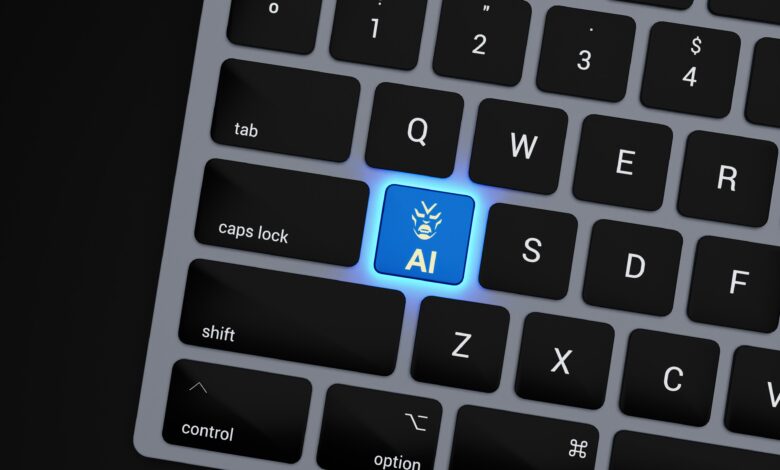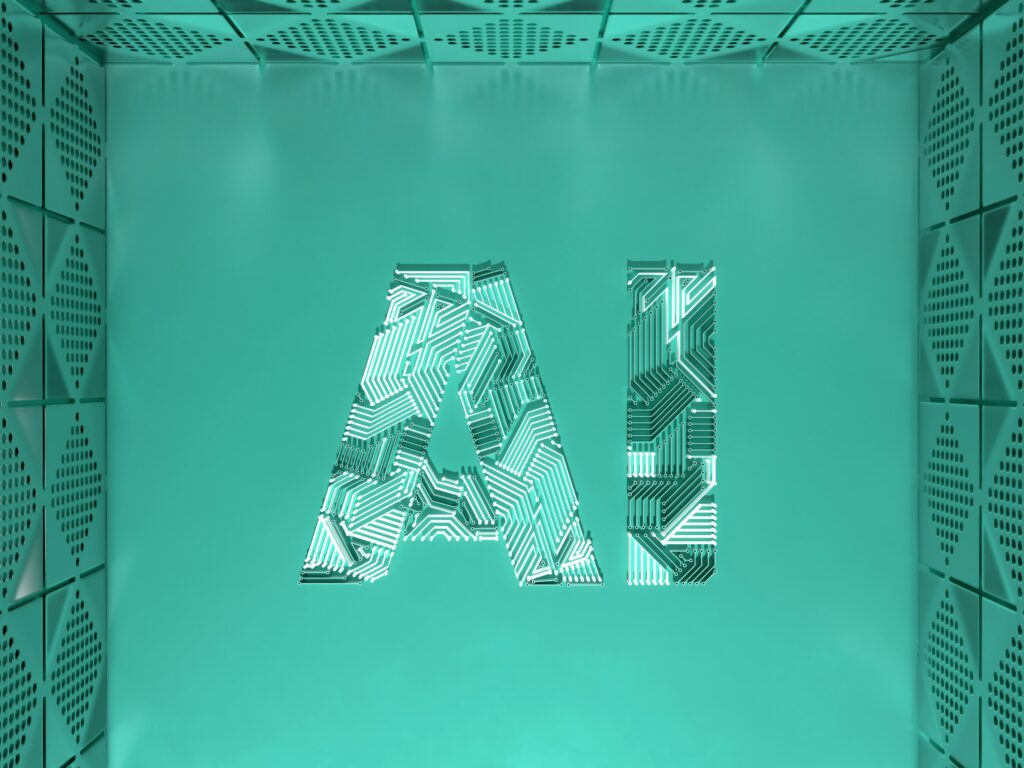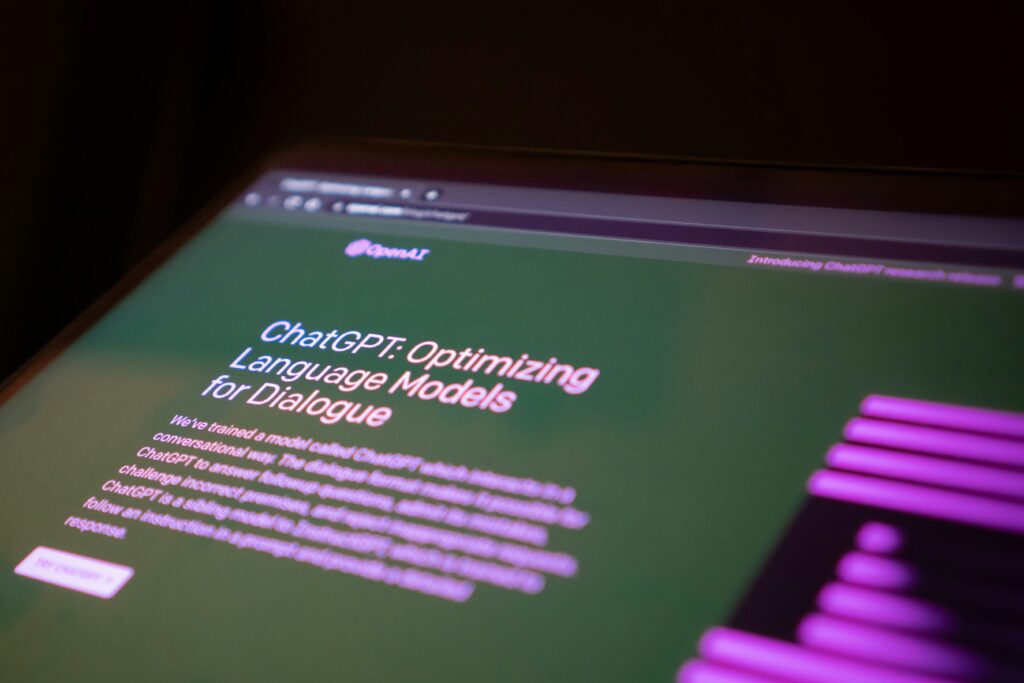
In AI news this month we’ve seen a few key developments as a result of the technology’s impact on the labor market.
With the warnings from Anthropic’s CEO that AI has the potential to make up to half of entry-level white collar jobs obsolete, concerns have rightfully remained in the market.
However, last week global management firm Accenture revealed plans that suggest a more nuanced turn of events. As the company aggressively prioritizes its AI efforts, it has placed the technology at heart of all operational activity. To support this future, Accenture has been on a massive hiring drive, beefing up iAI talent with 77,000 employed AI and data professionals in 2025. For existing employees, the message is clear: retrain and retool in AI or be shown the door.
As we approach 2026, we can expect to see more organizations place a priority emphasis on AI skills. Rather than cutting the bottom out of the labor market, professionals need to hone complementary abilities that mean they can get the most of AI.
The good news is that the education sector is already stepping up to the challenge, with initiatives like Alpha Schools hitting the headlines in September for its AI-powered schools that embrace, rather than reject, the presence of technology in the classroom to prepare young learners for an AI-first future.
As the real-world adoption of AI moves from strength to strength, it seems the biggest limitation for scaling the technology is the question of energy. Hyperscale data centers that fuel LLMs and AI computations are draining power grids, with many needing more energy than entire cities.
With demand for AI clear, tech companies are now working to solve the challenge of energy. The US alone has roughly 3,000 data centers and this number only continues to rise. The AI boom means data centers could consume 8% of total U.S. electricity by 2030.
The likes of Meta, Amazon, Microsoft, and Google are looking to nuclear energy as the solution to this energy crisis.
Here are some other highlights for September from the AI community across the globe that you might have missed this month.
The industry must address unrealistic AI expectations, according to new report from Solvd
Although the AI boom has seen demand soaring, experts say that unrealistic expectations about how quickly companies will see a return on their AI investments is storing up problems for the future.
This September, Solvd released a report detailing the results of a survey of 500 U.S. CIOs and CTOs at $500M+ companies. Here, 71% of all CIOs and CTOs who participated in the survey noted that leadership holds unrealistic expectations about AI.
Meanwhile, the pressure to generate returns means that tech leaders at large U.S. enterprises are stuck between a rock and a hard place. They are deeply worried about unethical AI use, only a minority has formal oversight in place to prevent it.
The expectation to see overnight ROI from AI initiatives is creating high-pressure work environments that will affect how the technology is applied if the situation isn’t addressed.
“AI is moving at breakneck speed, but speed alone isn’t a strategy,” said Adam Gabrault, CEO of Solvd. “Too many organizations get stuck in endless loops of pilots and proofs of concept, with little to show for it.”
Key themes featured in the research include a widening ethical AI implementation gap, a lack of clarity around who should be responsible for governance, the influence of economic uncertainty on AI investment decisions, as well as intense pressure on technology leaders to quickly produce ROI.
Read the report from Solvd here.
AI-powered solution for solar developers comes to Cyprus
By automating solar rooftop lead generation with AI and geospatial data, Planno accelerates the discovery of prime rooftops and connects with customers faster than ever before. Its unique approach integrates proprietary and third-party data, creating comprehensive customer profiles for efficient and effective expansion.
Planno in September announced its entry into its latest geographic location, with its services now live in the Republic of Cyprus.
In Cyprus, one can already find a market with a 13.8% rate of solar adoption. Planno aims to help developers access the other 86%.
Exclusive market research from the company suggests there is 850 MWp of untapped solar opportunity in Cyprus across more than 7,300 commercial and industrial rooftops.
The company’s AI-powered platform is helping solar developers find these leads more quickly to help the country take advantage of its abundance of sunlight and fuel its transition to renewable energy.
AI boom comes to Medellin, Colombia with the Tech Sphere conference from Source Meridian
On September 27th, technology leaders, researchers, entrepreneurs and professionals from a variety of sectors and backgrounds visited the University of Antioquia in Medellin, Colombia for the third edition of TECH SPHERE.
For Medellin, this event comes at a key moment. The local ecosystem continues to grow, and the need for spaces that connect talent, knowledge, and opportunities is more urgent than ever.
The event, organized by Source Meridian, aims to explore how AI can be practically applied to solve real challenges and scale impactful solutions. The sessions were designed to not just talk about AI, but to understand it, build with it, and democratize its use.
Event organizers have worked closely with partners to understand the most pressing questions for regional attendees to offer solutions and advance the dialogue.
AI-first interior design startup Decorilla enters Spain
In its first step across Europe, Decorilla, referred to as the #1 online interior design service from New York, this month announced its official launch in Spain.
The digital design enterprise is making luxury interior design accessible across Spain by combining its cutting-edge VR and AI technology with design talent in Barcelona, Ibiza, Madrid, Málaga, and Valencia.
Decorilla’s innovative approach allows clients to immerse themselves in designs before making any commitments through detailed 3D renderings and VR tools.
From apartments in Madrid to apartments in Málaga, the company is now helping homeowners avoid costly mistakes and feel more confident in their design decisions.
U.S. Department of Energy launches new AI initiative
The U.S. Department of Energy introduced this month a Speed to Power Initiative that is seeking information on multi-gigawatt generation, transmission, and grid infrastructure projects that enable the power needed to win the AI race.
Noted Dan Helman, CEO of Think Power Solutions, that when it comes to these types of initiatives, grid speed must equal grid safety.
According to the CEO in an Op-Ed, “When leaders ensure that safety is built into every contract, every training program, and even the tools they choose to adopt, they’re not just following compliance; they’re making sure those workers return home safely.”
Why Global Capacity Centers are driving the future of AI
In today’s connected economy, Global Capacity Centers (GCCs) are working behind the scenes to create software, data and AI solutions for the biggest multinational on the planet. A robust global delivery model, spanning multiple geographies, enables GCCs to deliver consistent, scalable solutions worldwide.
According to Ness Digital Engineering, the center of innovation is shifting from a software-driven world to a data-driven one. In this future, data is no longer just a byproduct of digital systems but the primary driver of intelligence, personalization, and competitive advantage.
While the AI boom is fully in motion, hybrid software data products are driving 20–30% higher customer satisfaction and reducing time-to-market by 15%, making these the most valuable digital products of the future.
GCCs must shift from writing code to engineering intelligence, providing not just cost-effective software engineering services but intelligent, data-driven, and autonomous solutions that drive continuous improvement in speed and quality of software engineering.
Learn more about this trend from Nova Bhojwani, Global Industry Head – Financial Services at Ness Digital Engineering, here.
UK Space Agency awarded £1.5m to six pioneering projects that use satellites and AI unlock climate innovations
This month six companies were awarded grants from the UK Space Agency.
The funding, delivered through the Unlocking Space for Business programme, is designed to accelerate innovation in sectors that haven’t traditionally used space data, turning “space tech” into practical tools for finance, shipping, insurance, railways, navigation accessibility.
Howden, through a partnership between the Howden Resilience Laboratory and PCI Geomatics Enterprises UK Ltd (DBA CATALYST) was one of the award recipients. The company is building a satellite-based system for biodiversity risk assessment to help insurers and businesses monitor land changes and meet nature-related regulations.
As industry adoption of AI advances, startup MODE doubles down on security
Information security is emerging as one of the defining issues for companies adopting AI and digital transformation. It’s also become front and center for companies small and large.
To help address this, MODE, which optimizes building performance with AI-powered insight, announced in September that it had secured its new certification, confirming that its systems meet global standards for protecting sensitive data.
The new accolade covers MODE’s operations end-to-end, from development to cloud infrastructure. Its importance is clear for BizStack, the company’s flagship platform that combines on-site sensors and AI to deliver insights for building management, construction, and logistics.
Credibl ESG and Deloitte Australia team-up
AI-powered sustainability startup Credibl ESG announced this month its collaboration with Deloitte Australia on the launch of SustainNext Climate Reporting.
At Credibl, the company has long believed that climate reporting should be more than a compliance exercise; it should be the backbone for smarter, more resilient businesses.
The new solution brings together Deloitte’s deep assurance expertise with Credibl’s AI-powered Smart Sustainability Stack™, delivering Audit-ready disclosures aligned with IFRS S1/S2 and AASB requirements, automation and scale to reduce cost, effort, and complexity, and to provide insights that turn sustainability data into a driver of long-term value.
The new launch aims to not only be a platform, but also an expression of its mission to help companies move beyond fragmented and resource-heavy processes. By embedding AI at the core, organizations can turn climate reporting from a compliance challenge into a catalyst for clarity, speed, and strategic value.
Brands leverage AI to serve digital ads in public thanks to new partnership between ADvendio and Vistar Media
Digital Out-of-Home advertising (DOOH) is an emerging sub-sector of traditional digital marketing where dynamic and targeted ads are served to users through public digital screens.
As DOOH gains traction as one of the most effective ways to engage with audiences who are fatigued with social media and traditional forms of digital advertising, a new partnership is set to come out ahead.
AI-powered global omnichannel advertising management platform ADvendio announced this month it has partnered up with Vistar Media, a leading global provider of technology solutions for out-of-home (OOH) media.
Together, the two companies will help brands streamline DOOH campaign management by automating submission and the retrieval of data to offer faster access to insights and get more
Maestra.io enters the market as an AI-powered alternative to Klaviyo.
AI is also helping to boost e-commerce results thanks to the entry of Maestra.io to the market. The company has a focus on supporting ambitious brands ready to scale across several marketplaces or channels but struggle with the task of orchestrating multiple systems.
Maestra, offering a strong alternative to Klaviyo, helps to streamline a variety of tasks associated with e-commerce such as client communication, personalization, and loyalty programs.
By solving fragmented, slow and unreliable service delivery, brands are seeing incredible results with Maetra. Swimwear brand JOLYN achieved a 26% increase in campaign-driven revenue thanks to the platform’s AI-powered features that helps these brands move past the limits of basic tools.
AI Con at M&A SoCal explores how to turn AI adoption into measurable business outcomes
On September 17th, industry leaders from Deloitte, Diversis Capital, and Making Sense discussed how companies can leverage AI experimentation to deliver measurable business value at M&A SoCal 2025. While AI adoption is widespread, few organizations capture tangible results due to a lack of strategic alignment, accountability, and clear success metrics.
The panel, titled “Data to Dollars: Unlocking Transaction Value Through AI,” brought together industry leaders to explore that challenge from multiple perspectives. Mariano Jurich, Digital Product & Project Manager at Making Sense, moderated the session alongside Kara Gerardin, AI Leader in Deloitte’s M&A practice, and Alex Tumarinson, Operating Partner at Diversis Capital.
The discussion focused on the current state of AI adoption in the mid-market, the barriers preventing companies from achieving ROI, and the practical steps needed to align technology with business outcomes. “What the conversation at AI Con made clear is that AI is no longer about potential,” said Juric. “It is about outcomes. The organizations that connect AI initiatives directly to revenue, efficiency, and enterprise value will be the ones that define the next wave of growth.”
Straive, a leader in operationalizing data analytics & AI, took home this year’s GCC AI Visionary at Cypher’s Minsky Awards
Straive, a global leader in operationalizing data analytics and AI, in September took home this year’s GCC AI Visionary at Cypher’s Minsky Awards, considered one of the most prestigious AI awards in India.
The award is a testament to the startup’s role in embedding artificial intelligence into Global Capability Centers (GCCs) to deliver next-generation resilience, efficiency, and innovation at scale.
Datanorth AI’s case shows how Olympic Committees can empower global sports with AI adoption
Finally, AI is driving an impact in global sports. The Association of National Olympic Committees (ANOC) has a Digital Accelerator Program to enhance digital competencies among its members. They recently partnered with DataNorth to explore the growing relevance of AI in sports governance and communication.
Through five interactive webinars led by DataNorth, the company covered topics such as data, digital communications, and advanced AI use cases. Importantly, the sessions were structured to appeal to participants at various stages of AI adoption, from those experimenting with tools like ChatGPT for the first time to those already integrating AI into daily workflows.







